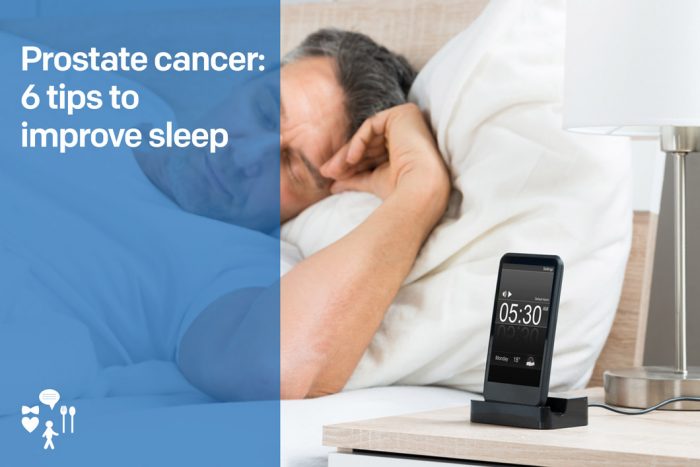Many people that have prostate cancer find it difficult to sleep. That is because not only can the treatment of the disease create anxiety and uncertainty in the person’s life, but these, in turn, can disrupt sleeping habits and create insomnia.
Here are a few tips for behaviours that would create a relaxing environment for sleep if you have prostate cancer.
- Avoid blue light
It has been proven that the blue light emitted by phones and computers damages sleep. Before you sleep, turn off the electronics or put them away. The same is true for LED lights, which produce harmful blue light as well.
Blue light confuses the biological clock and affects that circadian cycle that tells the brain when it is time to sleep or be awake. When you spend too much time in front of a screen before going to bed, falling asleep would be difficult. Why not read a good old book to relax the brain instead?
- Establish a routine
Sleep is affected by rhythm. If you constantly change the time you go to bed and wake up, the biological clock gets disrupted and it is more difficult to fall asleep. Have a plan and follow a routine – that will lead to normal sleep as well.
- Avoid “sleep debt”
We all know that financial debt can cause stress, which then can cause insomnia. However, we are not talking about financial debt here, but rather sleep debt, which is a term for a series of bad nights. The more sleepless nights you accumulate, the harder it is to fall asleep. Do not be deceived: a day or two of sleep will not solve the problem. Instead, they will only disrupt the system further. A better solution is a routine of good night’s sleep.
- Try to relax
Mindfulness meditation is one of the relaxation methods that can help you to sleep better. It allows you to escape the thoughts that occupy your mind and prevent you from sleeping. A number of free applications are available that help you try this relaxation method that can be effective when waking up and when going to bed.
- Avoid alcohol and coffee
If you are experiencing sleep problems, take it easy on coffee and alcohol late in the afternoon and in the evening. The residual effect of caffeine can last for more than six hours after you consume it, which will likely prevent you from closing your eyes. Alcohol is a false friend of sleep because if after a few drinks you quickly go to sleep, the rest of the night, you would be tossing and turning, feeling agitated, and getting dehydrated, until eventually you wake up early in the morning.
- Seek professional advice
If the problems persist, do not hesitate to seek the help of a professional, such as a pharmacist or doctor. They will be able to advise you on the appropriate medications that can help with your sleep, especially if you have prostate cancer.
Inspired by a blog by David Desjardins
David Desjardins is a frequent contributor to L’Actualité, Vélo Mag, Entrée Principale, and Radio-Canada. He is the editor of NotreSanté.ca.



 ADDITIONAL RESOURCES
ADDITIONAL RESOURCES

